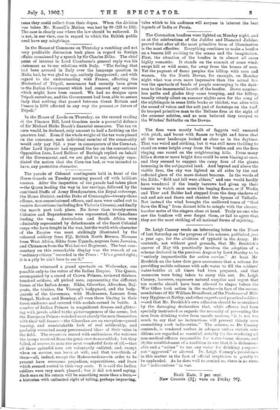The fires were mostly built of faggots well smeared with
pitch, and burnt with flames so bright and fierce that all the near landscape looked as clear as in the daytime. That was weird and striking, but it was still more thrilling to stand on some height away from the bonfire and see the fires ringing one round on the neighbouring hills. From many hills a dozen or more bright fires could be seen blazing at once, and they seemed to suggest the camp fires of the giants hemming in the subjugated land. And beyond and above the visible fires, the sky was lighted on all sides by the red reflected glare of the more distant beacons. In the words of the Edda, "field and fell were ablaze," and one would hardly have wondered if the lonely barrows had given up their tenants to watch once more the leaping flames, or if Wodin and Thor and Balder had stepped from the deep shadows of oak and ash and thorn and chanted the hymns of Valhalla. But instead the wind brought the mellowed tones of "God Save the King" from distant hills to mingle with the clearer, harsher notes of the singers close at hand. Truly no one who saw the bonfires will ever forget them, or fail to agree that they are the most striking of all national forms of rejoicing.














































 Previous page
Previous page